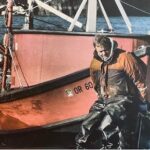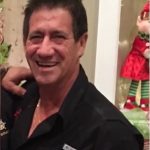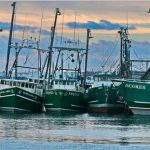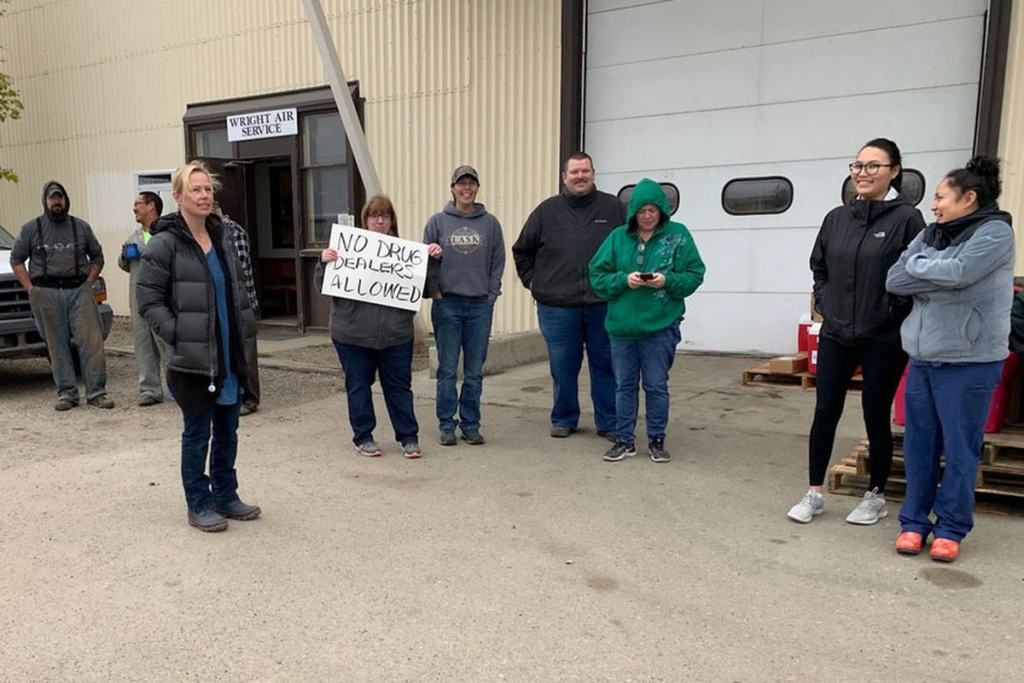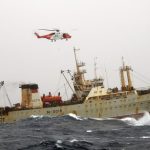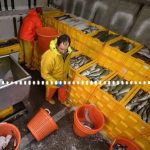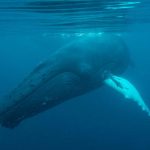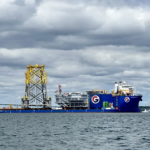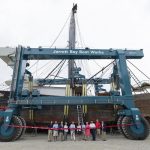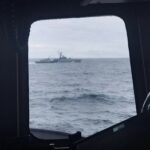Tag Archives: Fish and Wildlife Commission
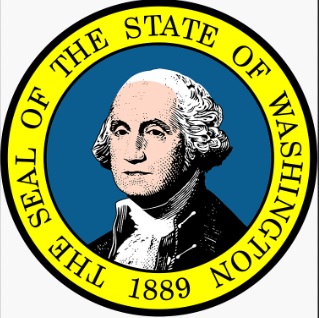
Letter: Columbia River Non-Tribal Gillnet Fishery Is No Threat to Recovery of ESA-Listed Salmon
Salmon management should be based on the best available science, but the efforts Sen. Wilson praises are not supported by the science. The commercial gillnet fishery harvests within all management guidelines, The non-tribal gillnet fishery in the lower Columbia is an important part of the cultural fabric of Washington state. It is a component of a commercial fishing industry that provides hundreds of year-round jobs in rural Washington and has for 150 years. Commercial fishermen were deemed “essential workers” during the pandemic because they harvest protein to feed residents of the Northwest and of the world and contribute substantially to Washington’s food security and the state economy. >click to read< By Robert Sudar, Longview 19:58
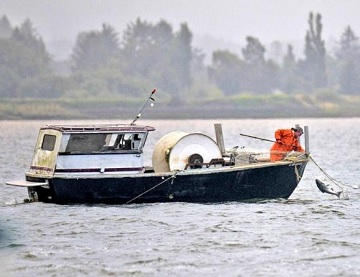
Oregon: Return to evenhanded salmon management
In Astoria in April, the Oregon Fish and Wildlife Commission learned there’s still plenty of life in commercial fishing. This may have come as a surprise, considering how some sport fishing groups have mischaracterized the industry as irrelevant. Since Washington state and Oregon co-manage Columbia River fisheries, the commission’s policies take on great importance for all who value the continuing economic and social benefits of traditional industries. Of these, salmon fishing is so deeply entwined in local culture that it may be said to comprise a key element of our heritage. Still in need of a course correction are misguided policies dictated by former Oregon Gov. John Kitzhaber. >click to read< 07:55
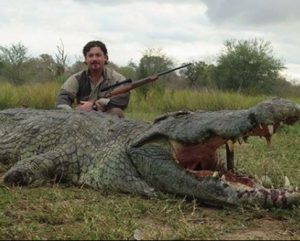
Wildlife conservation groups say Gov. Brown has sold them out in favor of ranchers, hunters and commercial fishers.
The Oregon conservation community was shocked this week by the nomination of a big game hunter to the state’s Fish and Wildlife Commission, saying the nominee has shown a disdain for animals and has conflicts of interest. James Nash, a retired marine, hunting guide and rancher who lives in Wallowa County, was tapped by Gov. Kate Brown,,,, >click to read< And they describe it as a betrayal by a governor who they say pledged during her re-election campaign last year to protect the threatened species—but, after winning, picked nominees favoring groups that include ranchers, loggers and commercial fishermen, and hunters whose economic interests may conflict with the desires of a majority of Oregonians. >click to read<14:02
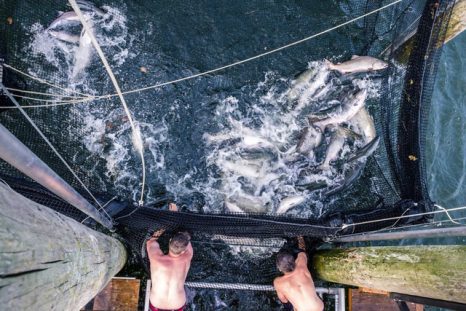
Fish traps for Columbia River salmon get another look
More than eight decades after their demise, fish traps are getting a fresh look from researchers convinced they offer a more sustainable way to catch Columbia River salmon. These traps are formed by nets attached to pilings that gently guide the fish into a kind of underwater corral. Wild fish protected under the federal Endangered Species Act can be released to resume their upstream journey, while their more abundant hatchery brethren are sent to the processors. These traps are formed by nets attached to pilings that gently guide the fish into a kind of underwater corral. Wild fish protected under the federal Endangered Species Act can be released to resume their upstream journey, while their more abundant hatchery brethren are sent to the processors. click here to read the story 12:55
Washington Fish and Wildlife Commission to discuss Columbia River reforms on Friday
The 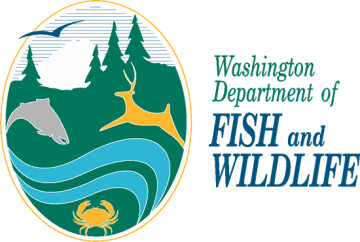 Fish and Wildlife Commission will meet by teleconference at 8:30 a.m. Friday to discuss the Columbia River salmon reforms. The public may listen to the discussion at the Department of Fish and Wildlife office, 2108 Grand Blvd. Earlier this year, the Washington and Oregon commissions adopted slightly different policies regarding the overhaul of sport and commercial fishing regulations for the lower Columbia. The biggest difference is the allocation of fall chinook salmon in 2017 and 2018, plus Washington’s intention to eliminate the use of gillnets beginning in 2019. Commission members on Friday will discuss and clarify the guidance they are giving Jim Unsworth, department director, in his negotiations with Oregon. Link 11:50
Fish and Wildlife Commission will meet by teleconference at 8:30 a.m. Friday to discuss the Columbia River salmon reforms. The public may listen to the discussion at the Department of Fish and Wildlife office, 2108 Grand Blvd. Earlier this year, the Washington and Oregon commissions adopted slightly different policies regarding the overhaul of sport and commercial fishing regulations for the lower Columbia. The biggest difference is the allocation of fall chinook salmon in 2017 and 2018, plus Washington’s intention to eliminate the use of gillnets beginning in 2019. Commission members on Friday will discuss and clarify the guidance they are giving Jim Unsworth, department director, in his negotiations with Oregon. Link 11:50
Oregon Considers Not Implementing Full Planned Columbia Fall Salmon Reallocation In 2017, Sport fishermen unhappy.
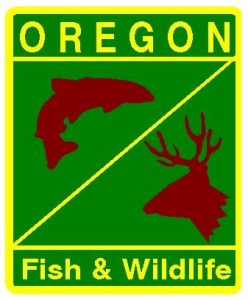 Planned Lower Columbia fall Chinook allocation reformations next year could be put on hold and that’s raising alarm bells in the sportfishing community. Oregon fish managers are proposing not moving to an 80:20 recreational: commercial split in 2017, as WDFW and ODFW had agreed to several years ago, and instead want to continue with recent years’ split as well as continue gillnetting in fall above the Lewis River. They’ll pitch the state next Wednesday, Nov. 9, on why, as well as update them on research into alternative commercial gear the past few years, but in the meanwhile have posted a host of documents explaining their thinking in minute detail. Read the rest here 10:17
Planned Lower Columbia fall Chinook allocation reformations next year could be put on hold and that’s raising alarm bells in the sportfishing community. Oregon fish managers are proposing not moving to an 80:20 recreational: commercial split in 2017, as WDFW and ODFW had agreed to several years ago, and instead want to continue with recent years’ split as well as continue gillnetting in fall above the Lewis River. They’ll pitch the state next Wednesday, Nov. 9, on why, as well as update them on research into alternative commercial gear the past few years, but in the meanwhile have posted a host of documents explaining their thinking in minute detail. Read the rest here 10:17
New Puget Sound smelt fishing regulations hope to stop decline in population
 The state Fish and Wildlife Commission has taken on new measures for smelt fishing in Puget Sound to keep the populations from dwindling. “The new regulations preserve sport and commercial fishing opportunities while providing needed protection for smelt,” Wecker said. The new regulations are: Read more here 15:34
The state Fish and Wildlife Commission has taken on new measures for smelt fishing in Puget Sound to keep the populations from dwindling. “The new regulations preserve sport and commercial fishing opportunities while providing needed protection for smelt,” Wecker said. The new regulations are: Read more here 15:34
Political games are devastating sustainable commercial fishing
Not a single commercial fisherman nor any representative from the food industry sits on the nine member Fish and Wildlife Commission to speak for an industry which accounts for 15,000 jobs in the Seattle area alone, according to a Port of Seattle study. No one speaks for the fish consumers which my family fishing business supplies at King County farmer’s markets, nor for the majority of state citizens who buy their local salmon at the fish counter. While they are excluded, the trophy-hunting Safari Club, the sport gear sales industry, fish farm advocates and other game-oriented groups all find seats at the fish and wildlife table, alongside nominal conservationists. Read more
Oregon, Washington continue talks to ease gill-nets from lower Columbia River salmon migration lanes
In 2009, a legislator suggested a commercial fishery in the Portland harbor reach of the lower Willamette River. The same year, a highly placed official of the Coastal Conservation Association (CCA) suggested to me we might both live to see the day when commercial fishermen harvest salmon alongside sport anglers in tributaries. Neither idea, of course, came to pass … or was even seriously considered. Until now. Both still remain far from reality following Thursday’s meeting of fish and wildlife commissioners and staffs from Oregon and Washington, but neither is as far-fetched as they seemed three years ago. Netting the lower Willamette is just one of several radical suggestions the beleaguered commercial community brought to Thursday’s meeting.http://www.oregonlive.com/sports/oregonian/bill_monroe/index.ssf/2012/10/post_48.html

































